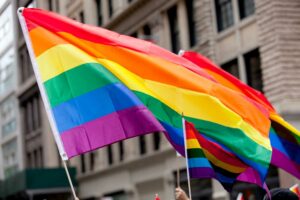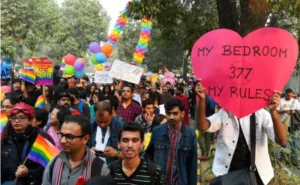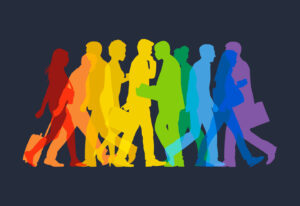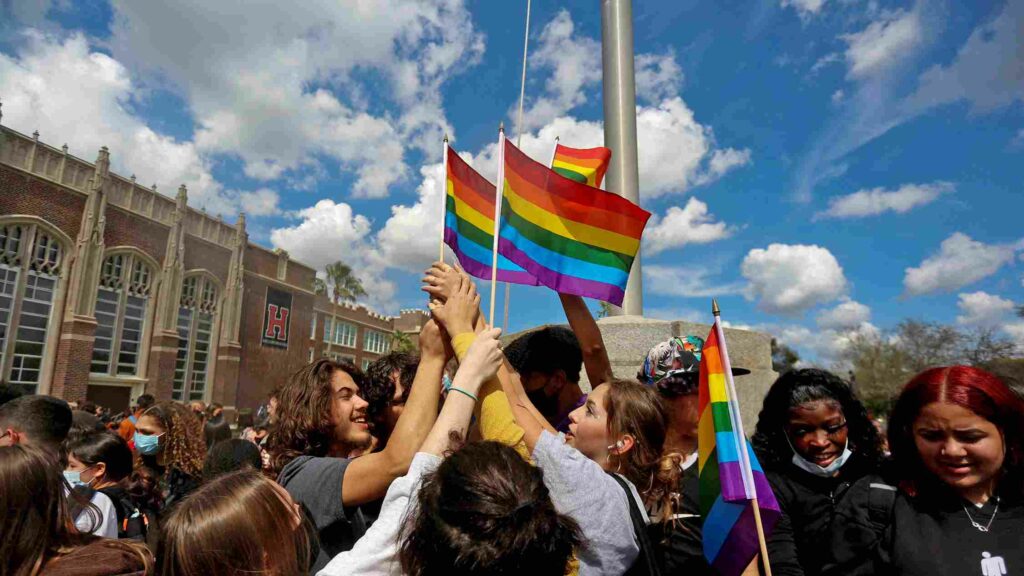In the vibrant tapestry of human existence, diverse identities and orientations have always played a pivotal role. However, these identities have often been marginalized, misunderstood, and even suppressed throughout history. Among the most vibrant yet frequently sidelined groups are those that fall under the LGBTQ+ (Lesbian, Gay, Bisexual, Transgender, Queer, and more) umbrella. Our society has taken notable strides toward recognizing and respecting these identities. But the journey towards complete acceptance and equality is still far from over. This blog aims to shed light on the importance of human rights for the LGBTQ+ community, detailing their historical struggles, and the ongoing fight for comprehensive equality.
Contents
Historical Struggle for LGBTQ+ Rights
 The struggle for LGBTQ+ rights has a deep and complex history that varies greatly from region to region and culture to culture. From ancient societies that embraced various forms of sexual and gender diversity to eras where such identities were viciously oppressed. And the path has been marked with alternating periods of acceptance and denial.
The struggle for LGBTQ+ rights has a deep and complex history that varies greatly from region to region and culture to culture. From ancient societies that embraced various forms of sexual and gender diversity to eras where such identities were viciously oppressed. And the path has been marked with alternating periods of acceptance and denial.
In many Western societies, particularly in the United States, the gay rights movement can trace its origins back to the late 19th and early 20th centuries. However, most activism was covert. And homosexuality was treated as a crime, a sin, or a mental illness for much of this time. It wasn’t until the mid-20th century that momentum began to build in earnest.
The 1950s and 1960s saw the formation of some of the first official LGBTQ+ advocacy groups. Such as the Mattachine Society and the Daughters of Bilitis, both in the United States. These groups aimed to educate the public, dispel stereotypes about homosexuality, and lobby for legal protections. Transgender rights have often been a separate fight, with issues such as legal recognition of gender identity, healthcare rights, and protection against discrimination coming to the fore more recently.
The struggle for LGBTQ+ rights is an ongoing journey. Despite significant strides in legislation and social acceptance, members of the LGBTQ+ community continue to face challenges and discrimination.
Importance Of Human Right For LGBTQ
Human rights are fundamental to all individuals, regardless of their sex, ethnicity, religion, or other status. The same applies to sexual orientation and gender identity, making the human rights of the LGBTQ+ community an essential aspect of social justice.
Here are some key reasons why these rights are crucial:
- Equality: Everyone should be treated equally, irrespective of their sexual orientation or gender identity. Equality doesn’t just mean equal treatment under the law. Instead, it also involves equal access to opportunities, resources, and services.
- Freedom from Discrimination: Members of the LGBTQ+ community often face discrimination based on their sexual orientation or gender identity. This can result in unequal treatment in employment, education, housing, and other sectors. Protection from discrimination is a basic human right and is crucial for the LGBTQ+ community to live openly and freely.
- Right to Personal Safety and Dignity: Violence against LGBTQ+ individuals, including physical and emotional abuse, is a pervasive issue globally. The right to personal safety and dignity is fundamental, and LGBTQ+ individuals should be protected against all forms of violence and harassment.
- Mental and Physical Well-being: Discrimination and stigma can have severe effects on the mental and physical health of LGBTQ+ individuals. They have higher rates of depression, anxiety, and other mental health issues due to societal pressures and prejudice. Their rights to healthcare and emotional well-being must be respected and protected.
- Right to Express Identity and Orientation: Every individual has the right to self-identification. This includes the ability for one to express their gender identity and sexual orientation freely and openly.
Respecting and promoting human rights for the LGBTQ+ community not only ensures justice for these individuals but also contributes to a more inclusive, diverse, and equitable society. It allows each person to live authentically and freely, improving societal well-being as a whole.
Currently Implemented Human Rights For LGBTQ
 The rights of LGBTQ+ individuals have seen substantial progress in many parts of the world, with numerous laws and protections implemented to safeguard these rights. However, it’s important to note that these advances are not uniform across all nations or regions. And there are many places where LGBTQ+ rights continue to be severely restricted or outright denied.
The rights of LGBTQ+ individuals have seen substantial progress in many parts of the world, with numerous laws and protections implemented to safeguard these rights. However, it’s important to note that these advances are not uniform across all nations or regions. And there are many places where LGBTQ+ rights continue to be severely restricted or outright denied.
Here are some key areas where rights have been implemented in various parts of the world:
- Decriminalization of Homosexuality
Many countries have decriminalized homosexuality, removing outdated laws that once classified same-sex relationships as criminal acts.
- Legal Recognition of Same-Sex Relationships
Numerous jurisdictions around the world now recognize same-sex relationships, either through marriage or civil partnerships. This recognition affords same-sex couples many of the same legal protections. And also, benefits from their heterosexual counterparts.
- Adoption Rights
In many places, same-sex couples are now legally allowed to adopt children, either jointly or as single parents.
- Anti-Discrimination Laws
A significant number of countries and regions have implemented laws prohibiting discrimination based on sexual orientation or gender identity. These laws cover various areas, including employment, housing, and services.
- Legal Gender Recognition
The right to legal recognition of one’s gender identity has been acknowledged in an increasing number of jurisdictions. This allows transgender individuals to change their legal gender on official documents. And, often without needing to undergo surgery.
- Healthcare Rights
Some regions have made strides in ensuring healthcare rights for LGBTQ+ individuals. Including access to gender-affirming treatments and protections against discrimination in healthcare settings.
While this progress is encouraging, it’s essential to remember that these rights are far from universally implemented or respected. In many places, LGBTQ+ individuals still face widespread discrimination, violence, and legal persecution. The fight for comprehensive LGBTQ+ rights continues on a global scale.
Challenges and Violations of LGBTQ+ Rights
 While significant progress has been made in advancing LGBTQ+ rights. Still, significant challenges and violations persist across the globe. These vary widely depending on cultural, social, and legal contexts, but some common issues include:
While significant progress has been made in advancing LGBTQ+ rights. Still, significant challenges and violations persist across the globe. These vary widely depending on cultural, social, and legal contexts, but some common issues include:
Criminalization of Homosexuality
In many countries, same-sex sexual activity remains illegal and can carry severe penalties, including imprisonment and, in some cases, the death penalty. This legislation infringes upon the basic human rights of LGBTQ+ individuals. And also, fuels stigma and discrimination.
Discrimination and Violence
Even where homosexuality is not criminalized, LGBTQ+ individuals often face widespread societal discrimination and violence. This can manifest in numerous ways. Including hate crimes, workplace discrimination, bullying in schools, and rejection from family or community.
Denial of Rights to Transgender Individuals
Transgender individuals face particular challenges, often denied the right to legally change their gender or access gender-affirming healthcare. They also face high levels of violence and discrimination.
Conversion Therapy
In some regions, so-called “conversion therapies” that aim to change a person’s sexual orientation or gender identity are still practiced. Despite being widely discredited and condemned by major medical and psychiatric organizations.
Inadequate Legal Protections
While some countries have anti-discrimination laws that include sexual orientation, very few also include gender identity. Furthermore, these laws are often inadequately enforced.
Social Stigma and Mental Health
The stress of social stigma and discrimination often results in higher rates of mental health issues, including anxiety, depression, and suicide, among the LGBTQ+ community.
Intersectional Discrimination
LGBTQ+ individuals who are also part of other marginalized groups (e.g., racial and ethnic minorities, people with disabilities) often face intersectional discrimination, compounding the challenges they face.
While the global picture can seem bleak, it’s important to note that substantial progress is being made in many regions, driven by the tireless advocacy of LGBTQ+ individuals and allies. However, there is still a long way to go to ensure full equality and respect for the human rights of all LGBTQ+ individuals.
Conclusion
In conclusion, the journey towards full recognition and respect for the human rights of LGBTQ is an ongoing global effort. While we celebrate significant strides in various aspects such as the decriminalization of homosexuality, legalization of same-sex marriage, implementation of anti-discrimination laws, and increased recognition of transgender rights in some regions, we must also acknowledge the continued hardships and struggles faced by the LGBTQ+ community.
Let’s remember that equality and human rights are not privileges to be won. But fundamental rights that everyone deserves. The LGBTQ+ rights movement is not only about a specific group of people. Instead, it’s a fight for universal human dignity, justice, and equality. By standing together for LGBTQ+ rights, we are standing for a world that respects and celebrates diversity in all its forms.
Life may sometimes be challenging for people from LGBTQ community, but Online LGBTQ Counseling can help. Get experienced LGBTQ therapists at PrideMantra: Book a trial LGBTQ therapy session


